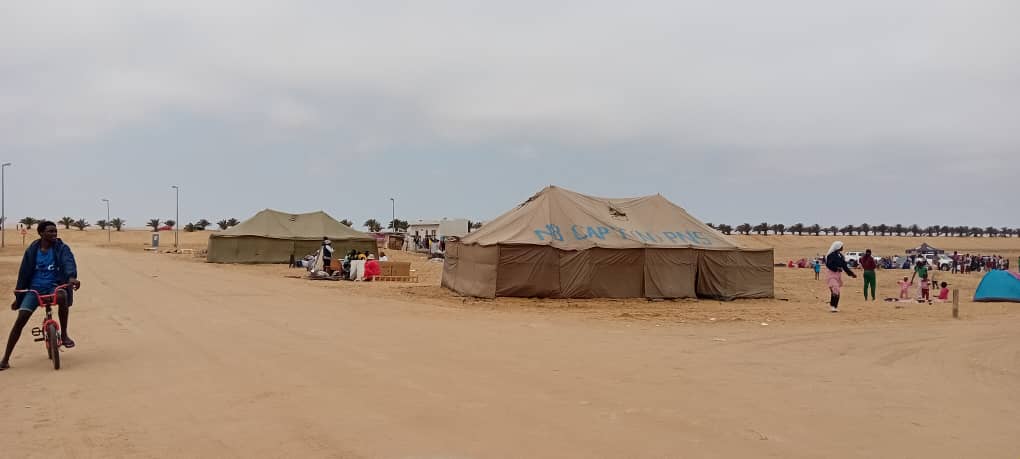LONDON – School had just ended and Kodjo Yenga was walking home along a tree-lined London street when a gang of angry youths blocked his path.
One held a snarling pit bull terrier that strained against its lead. Chants of “Kill him!” erupted from the mob.The teenagers, some of whom still wore their school uniforms, seized Yenga and one stabbed him in the heart.Witnesses heard members of the gang laugh as he lay dying in his girlfriend’s arms.His death, while shocking, was not a rare event: Britain is reeling from a spate of knife attacks including 12 stabbing deaths – six involving the slaying of youths – in a single week this month.Few have ready explanations for the trend, but parents and lawmakers alike fear an epidemic of violence among Britain’s youth is putting all generations at risk.”Too many people, young and old, do not feel safe in the streets, and sometimes even in their homes,” Prime Minister Gordon Brown acknowledged this week, pledging tougher sentences for those carrying knives.In a country where guns are scarce and account for only 11 per cent of homicides, knives are used in around two-thirds of killings and, according to lawmakers, carried by increasing numbers of young people.Nationwide statistics for knife crimes among youths are not available.But in London, the number of teenage murders, which held steady at under 20 per year between 2000 and 2006, rose to 26 last year and already stands at 19 for the first seven months of 2008 – the majority of them stabbing deaths.The apparent surge in knife crime is set against Britain’s unwanted record for the worst teenage pregnancy and juvenile drinking rates in Europe.FEAR FACTOR Chris Preddie, a 21-year-old former gang member whose brother was shot dead in a drug-related feud, said fear is driving younger and younger children to seek weapons.”It is about being afraid …and wanting to protect themselves,” Preddie said.”A lot of the children say it is so easy to get them, and I am still quite shocked because in my time it was not that easy to get knives and guns.”Academics back up his view, saying that once British children have been the victim of a crime, they’re twice as likely to carry a knife.Body armour companies say they can barely keep pace with orders for stab vests – some from anxious parents.Metal detectors are being installed in school entrance halls.The tear-streaked faces of children mourning for a murdered friend have become a familiar image.Legislators have pledged 100 million pounds (US$198 million) to respond, promising to strip problem families of social housing, allow teachers more freedom to search kids for weapons, and urge municipal leaders to impose curfews on teenagers in trouble spots.Some experts say the problem of youth violence is wildly exaggerated – part of a familiar pattern of demonising teenagers similar to panics over biker gangs in the 1960s or mobs supposedly inspired by a movie version of the book ‘A Clockwork Orange’ in the 1970s.One recent knife slaying struck a particularly strong public chord.Ben Kinsella, the 16-year-old brother of a television soap actress, was stabbed to death in London on June 29 after he apparently attempted to intervene in a fight among fellow youths.Hundreds laid flowers and held candles during a moonlight vigil in the London suburb where he was slain.Before his death, Kinsella had written a letter to Brown as part of a school project, warning of a rise in knife crime.Yenga, weeks before he was fatally stabbed last year, had appeared in an MTV documentary on knife crime, and said he was growing worried about an increasingly violent atmosphere in the capital.Jailing five teens over killing, Judge Christopher Moss said Yenga’s death was likely the result of a minor feud.It was the “needless loss of another young life” because of knives, he said.Parents from all walks of British life confess to worries about youth violence.Even ex-Prime Minister Tony Blair’s wife Cherie says she fears for the safety of the couple’s four children.”There’s an epidemic of fear among teenagers,” said Deborah Laing, a mother of five who serves as a parent representative on the board of a school in north London.Nampa-AP * Associated Press Writer Emily Ristow in London contributed to this reportChants of “Kill him!” erupted from the mob.The teenagers, some of whom still wore their school uniforms, seized Yenga and one stabbed him in the heart.Witnesses heard members of the gang laugh as he lay dying in his girlfriend’s arms.His death, while shocking, was not a rare event: Britain is reeling from a spate of knife attacks including 12 stabbing deaths – six involving the slaying of youths – in a single week this month.Few have ready explanations for the trend, but parents and lawmakers alike fear an epidemic of violence among Britain’s youth is putting all generations at risk.”Too many people, young and old, do not feel safe in the streets, and sometimes even in their homes,” Prime Minister Gordon Brown acknowledged this week, pledging tougher sentences for those carrying knives.In a country where guns are scarce and account for only 11 per cent of homicides, knives are used in around two-thirds of killings and, according to lawmakers, carried by increasing numbers of young people.Nationwide statistics for knife crimes among youths are not available.But in London, the number of teenage murders, which held steady at under 20 per year between 2000 and 2006, rose to 26 last year and already stands at 19 for the first seven months of 2008 – the majority of them stabbing deaths.The apparent surge in knife crime is set against Britain’s unwanted record for the worst teenage pregnancy and juvenile drinking rates in Europe.FEAR FACTOR Chris Preddie, a 21-year-old former gang member whose brother was shot dead in a drug-related feud, said fear is driving younger and younger children to seek weapons.”It is about being afraid …and wanting to protect themselves,” Preddie said.”A lot of the children say it is so easy to get them, and I am still quite shocked because in my time it was not that easy to get knives and guns.”Academics back up his view, saying that once British children have been the victim of a crime, they’re twice as likely to carry a knife.Body armour companies say they can barely keep pace with orders for stab vests – some from anxious parents.Metal detectors are being installed in school entrance halls.The tear-streaked faces of children mourning for a murdered friend have become a familiar image.Legislators have pledged 100 million pounds (US$198 million) to respond, promising to strip problem families of social housing, allow teachers more freedom to search kids for weapons, and urge municipal leaders to impose curfews on teenagers in trouble spots.Some experts say the problem of youth violence is wildly exaggerated – part of a familiar pattern of demonising teenagers similar to panics over biker gangs in the 1960s or mobs supposedly inspired by a movie version of the book ‘A Clockwork Orange’ in the 1970s.One recent knife slaying struck a particularly strong public chord.Ben Kinsella, the 16-year-old brother of a television soap actress, was stabbed to death in London on June 29 after he apparently attempted to intervene in a fight among fellow youths.Hundreds laid flowers and held candles during a moonlight vigil in the London suburb where he was slain.Before his death, Kinsella had written a letter to Brown as part of a school project, warning of a rise in knife crime.Yenga, weeks before he was fatally stabbed last year, had appeared in an MTV documentary on knife crime, and said he was growing worried about an increasingly violent atmosphere in the capital.Jailing five teens over killing, Judge Christopher Moss said Yenga’s death was likely the result of a minor feud.It was the “needless loss of another young life” because of knives, he said.Parents from all walks of British life confess to worries about youth violence.Even ex-Prime Minister Tony Blair’s wife Cherie says she fears for the safety of the couple’s four children.”There’s an epidemic of fear among teenagers,” said Deborah Laing, a mother of five who serves as a parent representative on the board of a school in north London.Nampa-AP * Associated Press Writer Emily Ristow in London contributed to this report
Stay informed with The Namibian – your source for credible journalism. Get in-depth reporting and opinions for
only N$85 a month. Invest in journalism, invest in democracy –
Subscribe Now!










